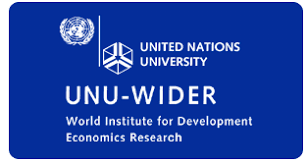
Deadline for proposal submissions is 15 March 2022 23:59 UTC+2.
United Nations University World Institute for Development Economics Research (UNU-WIDER) together with the Development Economics Research Group at the University of Copenhagen (UCPH-DERG) invite proposals for papers examining the challenge of illicit financial flows. The successful proposals will become part of the body of evidence within the UNU-WIDER project Detecting and Countering Illicit Financial Flows.
The project seeks to address the challenge of illicit financial flows by investigating the magnitude of these flows, the channels through which they flow, and the policy responses that may dampen the flows. The aim is to expand the research frontier and provide knowledge for the governments of developing countries in support of policies which will increase revenue collection.
Examples of potential research topics include, but are not limited to:
•Profit-shifting behaviour of multinational enterprises (MNEs) in low- and middle-income countries.
•Optimal taxation policy of MNEs dependent on the capacity of tax authorities.
•Impacts on tax collection in low- and middle-income countries from both internal and external anti-IFF policies, such as thin-capitalization rules, documentation requirements, controlled foreign corporation rules, mandatory disclosure of tax payments, and cross-border information exchange agreements.
•Capacity of tax authorities and its impact on tax collection. In particular, how can technical assistance best support sustainable development of sound tax authorities?
•Design of financial incentives and behavioural nudges to boost tax compliance.
•Rent-seeking by government officials or politically-connected persons.
•Studying the role of the financial sector in facilitating and detecting IFFs.
•The effects of taxes; e.g., wealth taxes, on IFFs.
•Extractive industries (oil & gas; mining): tax evasion and avoidance by MNEs. Smuggling of precious metals and gemstones (including from artisanal mines).
•Developing new methods for measuring extent of IFFs.
•The role of cross-border information exchange in combatting IFF in developing countries.
•Other IFFs not directly related to tax collection, such as the drug industry, trafficking, financing of terrorism, money laundering, and corruption. For instance, studying adherence to Financial Action Task Force on Money Laundering (FATF) guidelines against money laundering and terrorist financing.
Innovative proposals addressing how developing countries can take new policy measures to reduce the volume of IFFs are welcome, and proposals addressing the ‘who and why’ alongside the ‘how and how much’ in relation to illicit financial flows are encouraged.
Request for research proposals
Proposals from individuals (or groups of individuals) as well as non-profit organizations are welcome. Applications from suitably-qualified women and developing country researchers are particularly encouraged. Proposals may address one or more of the research questions.
A total research honorarium in the range of US$6000-10,000 will be paid upon delivery of a working paper and a one-page summary of the main research findings. The papers need to be written in English, and should be limited to 10,000 words maximum inclusive of everything (text, tables, figures, footnotes, references). The aim is that these papers will be published in high-quality journals after publication in the WIDER Working paper series.
All successful applicants are expected to attend a 1-2 day workshop in 2023 (date and venue TBD) where final results will be presented and discussed.
Click here to read the full announcement for more information.
Proposal submission
Any questions on the proposal process should be sent to researchproposal3@wider.
Click on the link below for more info oh how to submit your proposal:




